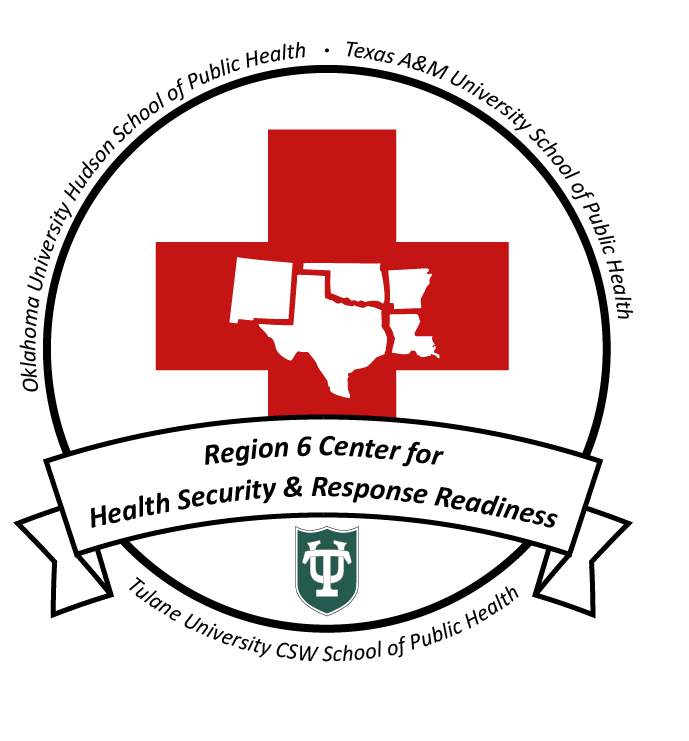Region 6 Center for Health Security and Response Readiness

5-YEAR WORKPLAN DEVELOPMENT PROJECT
In 2020, the National Academies of Science, Engineering and Medicine completed a scoping review citing major gaps in knowledge available to support current practice and advance the field of public health emergency preparedness. To address these needs, Congress appropriated funding to support each HHS region in the development of a 5-Year workplan to serve as a foundational guide for Center work. This CDC-funded initiative was led by Dr. Stephen Murphy and the Tulane University Center for Applied Environmental Public Health team between 2023 and 2024.
Core Activities
- Convening a Regional Coordinating Body (RCB) of experts across public health departments, healthcare, academia, and public school systems.
- Identifying key focus areas where evidence-based or promising practices can strengthen emergency response.
- Using a consensus-based Delphi process to prioritize the most urgent needs across the region.
- Creating and disseminating a practical, region-specific roadmap to guide implementation of evidence-based strategies.
In September 2024, CDC’s Office of Readiness and Response (ORR) Division of Readiness and Response Science (DRRS) awarded ten five-year cooperative agreements to one institution in each of the ten HHS regions, awarding Tulane’s Celia Scott Weatherhead School of Public Health & Tropical Medicine as the lead for Region 6. The Celia Scott Weatherhead School of Public Health and Tropical Medicine at Tulane University joins Harvard, Johns Hopkins, Columbia, and six other leading universities as the site of one of a series of new regional centers the Centers for Disease Control and Prevention is establishing around the country to help regions better prepare for future pandemics and other public health emergencies.
The Region 6 Center for Health Security and Response Readiness will address critical gaps in crisis preparedness in public health systems across Louisiana, Arkansas, New Mexico, Oklahoma, Texas and 68 federally recognized tribal nations. Funded by a $4 million, five-year CDC grant, it is one of 10 regional centers to be established nationwide with the goal of advancing and implementing new evidence-based strategies and interventions.
“The vision for the center is to create a robust, collaborative network that enhances the ability of public health systems to prevent, detect, and respond to emergencies on state, local and tribal levels,” said Principal Investigator Stephen Murphy, director of the Tulane MS in Health Security Degree Program. “This is an opportunity to better support our public health systems and workforce, build collaborative new partnerships, increase integration of evidence-based strategies into our emergency protocols, and use the decades of practice-based experience at Tulane and beyond to improve this region’s readiness for the emergencies of tomorrow.”
Dr. Jeffrey Elder, the chief medical officer and emergency medicine physician at University Medical Center in New Orleans and adjunct faculty in the Health Security MS Program, will serve as co-investigator for the center along with Leia Saltzman, PhD, Associate Professor at the School of Social Work, who focuses on disaster mental health and will lead data analysis and program evaluation. Summyr Burton, a current doctoral student at the Celia Scott Weatherhead School of Public Health and Tropical Medicine under Dr. Murphy, will continue to serve as the senior program manager.
Tulane will work with colleagues at Texas A&M’s USA Center for Rural Public Health Preparedness and Oklahoma University’s Hudson College of Public Health’s Center for Public Health Practice through subaward contracts to fulfill the center’s mission and extend the reach into the states this center will support
